In this series by Christopher James we investigate the 'Gay Best Friend' trope in movies.
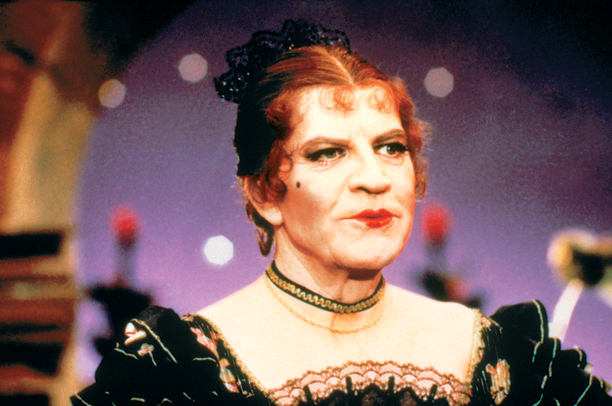 More movies should end with a gay best friend performing drag, like Robert Preston in Victor/Victoria.Many of the gay best friends in movies we've discussed to date have been supporting characters to give color to the protagonists, act as a sounding board, or fill out the world of the story. Rarely are they actual plot drivers who get to carry their own subplot. In only one film that we've discussed to date, My Best Friend’s Wedding, do they also get to be the ultimate hero of the story.
More movies should end with a gay best friend performing drag, like Robert Preston in Victor/Victoria.Many of the gay best friends in movies we've discussed to date have been supporting characters to give color to the protagonists, act as a sounding board, or fill out the world of the story. Rarely are they actual plot drivers who get to carry their own subplot. In only one film that we've discussed to date, My Best Friend’s Wedding, do they also get to be the ultimate hero of the story.
Blake Edwards 1982 musical comedy Victor/Victoria, like most gender-flipping movies, relies a bit too much on the gender binary. However, it uses its queer characters to help the straights find their own unique shading on the sexuality spectrum. This was my first time watching Victor/Victoria and it made for a delightful and hilarious Saturday afternoon romp...
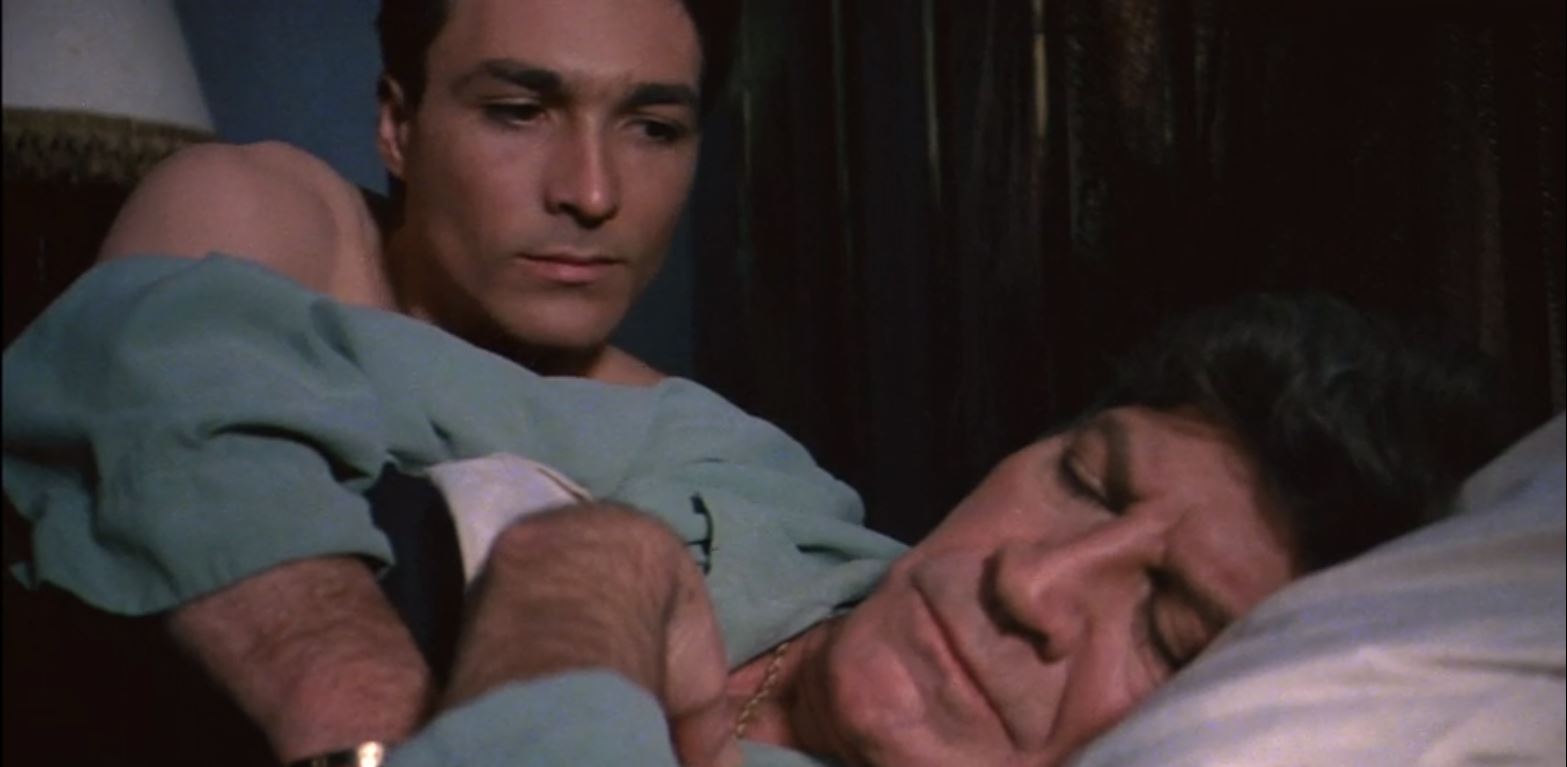 Robert Preston opens the movie in bed with a younger man. Buckle up, audiences. This is one gay movie.
Robert Preston opens the movie in bed with a younger man. Buckle up, audiences. This is one gay movie.
Though Victor/Victoria is first and foremost a Julie Andrews vehicle, it’s fitting we open on Toddy (Robert Preston) in bed with a hot, younger man. The movie leads with its homosexuality as it pushes each of its characters to reconsider how they identify and who they love. You can’t judge a book by its cover but Victor/Victoria let’s you know who it is (a gay ass movie!) from its opening moment.
Toddy meets Victoria (Julie Andrews) as she fails an audition at the club that he works at. Her talents as a soprano don’t necessarily match his bawdy rendition of “Gay Paree.” Unfortunately, Toddy’s own talents (and penchant for mocking patrons) gets him fired from the same gig Victoria was hoping to land. When the two happen upon each other during an extravagant meal they hope to get for free, a friendship begins. This only deepens when Victoria spends the night and takes care of Toddy when he has a fever. The bond between woman and gay best friend is crystallized when Victoria dresses in Toddy’s one-night-stand’s clothes and punches said trick once he comes back in a threatening manner. From then on, they're more than best friends, they’re co-schemers.
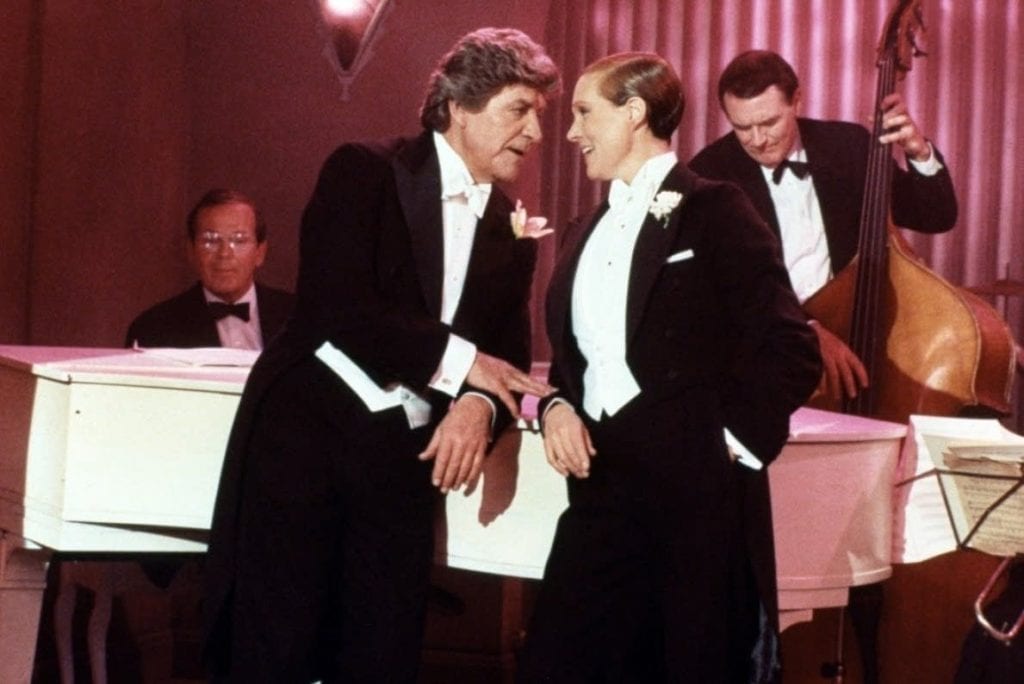 It's absolutely wild Mary Poppins herself starred in a film where she played a singer who could conceivably pass as a twink-y drag queen. The range.
It's absolutely wild Mary Poppins herself starred in a film where she played a singer who could conceivably pass as a twink-y drag queen. The range.
Toddy: Contrary to the popular conception of how a man acts, there are different men who act in different ways.
Victoria: I mean, as opposed to the way women act.
Toddy: I am personally acquainted with at least a dozen men who act exactly like women and vice versa.
Victoria looked enough like a man to fool Toddy’s f**k-buddy. She has an incredible voice, but no hook for an act. Both of them are out of work. Toddy turns to the only logical conclusion. Victoria should pretend to be a gay man named Count Victor Grazinski who performs as a drag queen named Victoria. She is not convinced. How will anyone believe she is a man? She doesn’t know how to act like a man.
Here’s where the movie really won me over. There’s no montage where Toddy teaches Victor how to become a man. There’s no one way to be a man and there’s no one way to be a woman. She can slick her hair back and act as effeminate as she is (albeit a couple octaves down) and be the sissiest gay man turned drag queen in Europe. It's a lighthearted romp from 1982 but it acknowledges that gender is a construct and people can express masculinity and femininity in different ways that aren't always tied to biology.
Up to this point, it could be argued that Toddy is the lead of the film. He comes up with the scheme and leads him and Victoria to great wealth and fortune. Yet, once the charade works, Toddy fades into the background. Yet, the movie fully inhabits a queer world that is essentially Toddy’s creation. Some may consider Toddy a co-lead, especially since he gets the plot started. However, as category-fraud/movie-screen-time expert Matthew Stewart notes, Toddy becomes Victor/Victoria’s supporting gay best friend as the movie goes on.
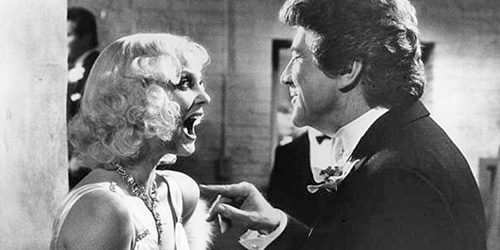 Coincidentally, that's also my face every time Lesley Ann Warren appears on my TV screen.
Coincidentally, that's also my face every time Lesley Ann Warren appears on my TV screen.
Norma: You're kidding? You really are... queer?
Toddy: Ah! We prefer "gay".
Norma: But... you're so... attractive.
[Toddy chuckles]
Norma: Well, I just think it's a terrible waste.
[Toddy laughs heartily]
Toddy: Well, if it's any consolation, I assure you it is not wasted.
Norma: You know... I think that the right woman could reform you.
Toddy: You know, I think that the right woman could reform you, too.
Norma: Me? Give up men? Forget it!
Toddy: You took the words right out of my mouth.
(Aside: we need to properly applaud for Lesley Ann Warren’s incredible performance as gangster moll Norma. The way she skewers every oblivious straight woman/bachelorette party that has tried too hard to have a “gay best friend” by dropping vaguely homophobic references is genius. To also have the makeup and gesticulations of a drag queen only makes her further perfection.)
Norma's exchange with Toddy after Victor’s performance is pure gold and an essential key to the film. All of the straight characters are attracted to the queer world that Toddy inhabits but they're only permitted day passes (and happy to keep paying admission). Only Toddy lives there.
Toddy also knows that his queerness is the key to the whole charade. He needs to be romantically attached to Victoria, pretending to be Count Victor, in order for them both to be rich. For a long time and definitely still in 1982, queerness was something to be hidden away in films. (Just a few years earlier, La Cage aux Folles was a hit and earned Oscar nominations but it was about a gay couple pretending to be straight to impress their child’s future in-laws.) So there’s something radical and liberating about Victor/Victoria's gay character being able to talk and laugh about his orientation without fear of ostricization. Even though Norma is problematic, she’s an 80s version of an ally. Thus, Toddy can make his jokes and move along. His plan is working. As a gay man at this point in time, this is one of the few ways he can be successful and be his authentic self.
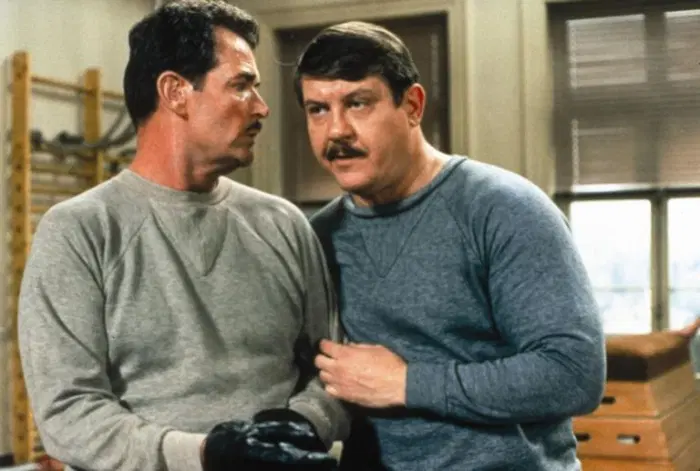 Would absolutely be invested in James Garner and Alex Karras as a couple. Alas, they’re just friends/employee-employer.
Would absolutely be invested in James Garner and Alex Karras as a couple. Alas, they’re just friends/employee-employer.
'Squash' Bernstein: In one fell swoop you've changed my whole life.
King Marchand: It wasn't *that* kind of swoop.
'Squash' Bernstein: Listen, if a guy like you can have the guts to admit that he's gay,
[pause]
'Squash' Bernstein: then so can I.
[kisses King]
'Squash' Bernstein: You've made me very happy!
As great as Preston is as Toddy, my gay heart fell in love with Alex Karras’ Squash. As Chicago gangster King Marchand’s bodyguard, Squash is roped in to do some detective work on Victor’s gender (yes, highly problematic). Squash has intruded on King and Victor in bed. Seeing his boss in bed with (in his mind) another man gives him the courage to come out himself. It could be so easy to make Squash the butt of the misunderstanding joke. However, Karras plays the scene with the utmost sincerity. He’s so excited to live in his truth, he gives King a kiss. Even though King knows Victor is actually a woman, Victoria, he is reckoning with his own possible bi-sexuality. The joke is on King. If everyone around him is gay or gender-bending, isn’t he being left out of the fun by being a straight guy?
King Marchand: [working out at a gym] Hey, Squash...
'Squash' Bernstein: Yeah?
King Marchand: Can I ask you a... personal question?
'Squash' Bernstein: Go ahead.
King Marchand: How long, I mean... exactly when did you know you...
'Squash' Bernstein: How long have I been gay?
King Marchand: Yeah.
'Squash' Bernstein: Oh, God, I can't remember when I wasn't!
King Marchand: I've known you for fifteen years...
'Squash' Bernstein: You know a lot of guys, boss, you'd be surprised.
King Marchand: But, you were all-American! I never saw a rougher, tougher, meaner, sonofabitch football player in all my life.
'Squash' Bernstein: Boss, if you didn't want the guys to call you queer, you became a rough tough sonofabitchin' football player.
Luckily, Squash’s newfound openness doesn’t see him take on any more effeminate qualities, which a lesser movie or actor might choose. A later scene in a gym gives King a chance to ask Squash more about his revelation. With gay panic being such a huge punchline in the 80s, 90s and even into the 00s, it’s rare to see a straight character in a movie wanting to ask their best friend questions about the gay experience.
Squash hits on a few interesting points in this conversation. He does a great job explaining that gay men don’t all have to be effeminite. He’s a rough and tough gay guy (and boy is there a market for that, see Tom of Finland). Compare and contrast him with Toddy, an effeminate man of the theater. Gay life is filled with men of various tribes and types. They’re not a monolith. In fact, masculinity is one way that gay men deflect from accusations of homosexuality. Especially during this time, straight culture vilified the picture of an effeminate gay man. Acknowleding that homosexuality can exist in anyone, no matter how masculine or feminine they appear, makes it trickier to oppress. It’s wonderful to see two very different gay best friends exist in the same universe. It’s even better to see the two men enjoy a little fun in the sack later on in the film.
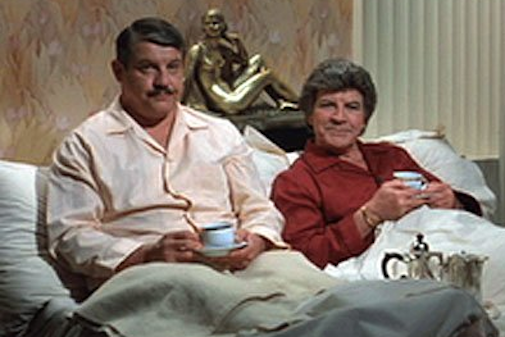 If this didn’t happen, I would’ve absolutely shipped Toddy and Squash. Glad they found a night of passion.
If this didn’t happen, I would’ve absolutely shipped Toddy and Squash. Glad they found a night of passion.
Essentially everything boils down to Toddy’s line about there being many types of men who act in a myriad of ways. For all the dated moments in Victor/Victoria, it does arrive at a startlingly modern thesis: A man can be anything and a woman can be anything. Any person can be gay, straight, bi, attracted to whoever and whatever. The best thing one can do is to continually express their truth and try new things. Our main romantic leads, Victoria and King, are constantly tested as they learn how expansive their sexual appetites are. It’s our queer characters, represented by Toddy and Squash, who are the evolved guides, not the butt of jokes. In fact, everyone is saved and Victoria and King live happily ever after because Toddy performs in drag as Victor in the final number. Toddy is the hero of the film. After all, who doesn’t want to be at least a little bit gay?